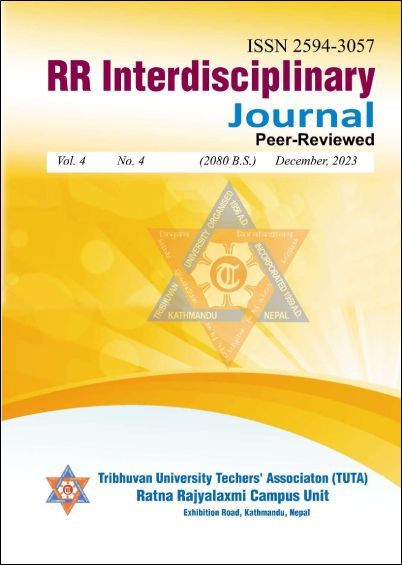Wage Theft of Nepali Migrant workers in Destination Countries: Grave Violation of Migrants’ Right
DOI:
https://doi.org/10.3126/rrij.v4i4.62746Keywords:
Wage theft, Nepali migrant, rights, complaints, violationsAbstract
Wage theft is the grave violation of human rights and labour law of migrant workers which varies with background characteristics of migrants. Despite the international and national legal and policy provisions, the issue of wage theft has been increasing over time which compounds with the humanitarian crisis. The main objective of this article is to examine the drivers of wage theft of Nepali migrant workers at destination countries. Cross sectional design was used in this study in which 241 Nepali migrants were interviewed who were returned from Gulf Cooperation Council (GCC) countries, Malaysia and other countries. Of the total respondents majority were from age group 25-29 (26.14%), from Janajati caste (38.17%), married (78.42%) and from Koshi Province (33.20%). The duration of stay, documentation status, status and places of case filing of Nepali migrant workers has the strongest effect on implementation of salary agreement [24 months and above (OR=20.397, CI: 4.345-95.739), undocumented status is significantly lower i.e. (OR=0.278, CI: 0.147-0.526), and the absence of case file (OR=7.362, CI: 3.437-15.768)]. Similarly, the unpaid status of Nepali migrant workers is also significantly associated with duration of stay and caste/ethnicity [6-12 months (OR=16.6333, CI: 2.548-108.589) and Dalit (OR=0.763, CI: 0.202-2.885),]. The level of education and knowledge on minimum salary is also significantly associated with coercive working situations [lower secondary (OR=0.047, CI: 0.012-0.178) and having no knowledge (OR=0.993, CI: 0.509-1.938)]. The study reveal the fact that the prevalence of wage theft among Nepali migrant workers is high among migrant living in longer period of time, migrants with knowledge on minimum salary, illiterate migrants, undocumented, migrants without agreement paper, and low paid migrants. For improving both working situation and full with timely payment, the migrant sending and receiving countries need to adopt proper legal and policy provisions with their effective execution.




